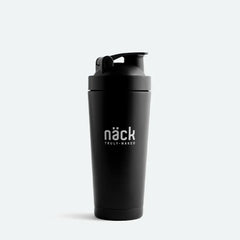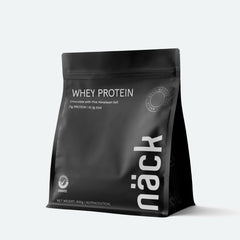Plant-protein
Plant Protein
Protein is an essential macronutrient and a fundamental nutritional component in the human diet throughout life as it is a necessity for a healthy immune system and required for organs like your heart, brain and skin to function properly. Protein also plays a crucial role in aiding muscle growth and maintenance as well as supporting metabolism and satiety.
Protein is made up of twenty-plus building blocks called amino acids. Some of these amino acids can be made by your body, whilst 9 of them, called essential amino acids, cannot. These 9 Essential Amino Acids – histidine, isoleucine, lysine, leucine, methionine, threonine, phenylamine, tryptophan and valine, you need to include enough of in your diet so your body can function properly.
Human beings aren’t able to store protein and will excrete any excess. We can break down muscle tissue to get certain amino acids but it does not have any specialized cell to store protein efficiently like it does with fat and carbohydrates. For this reason, eating protein at every meal is of paramount importance.
Digestibility And Amino Acid Composition In Plant Based Protein
In general, most animal-based protein sources, like whey, egg and beef provide all 9 Essential Amino Acids (EAAs) and are considered complete. Plant proteins, however, mostly have insufficient levels of one or more EAAs. For example, legumes, like peas, are low in the essential amino acid methionine, while lysine is typically limited in grains, such as rice. However, research shows that if you combine these two sources, they complement each other and can form a complete essential amino acid profile which closely reflects the typical characteristics of animal-based protein.
1. Plant Proteins: Assessing Their Nutritional Quality and Effects on Health and Physical Function. Nutrients. 2020;12(12):3704. Published 2020 Nov 30. doi:10.3390/nu12123704
Hertzler SR, Lieblein-Boff JC, Weiler M, Allgeier C.
2. Protein content and amino acid composition of commercially available plant-based protein isolates. Amino Acids. 2018;50(12):1685-1695. doi:10.1007/s00726-018-2640-5
Gorissen SHM, Crombag JJR, Senden JMG, et al.
Muscle Growth And Maintenance
Protein is essential for muscle growth and maintenance. Two separate studies have shown that pea protein isolate promotes both muscle growth, strengths and maintenance in conjunction with high intensity and resistance training.
In a double-blind randomized placebo controlled clinical trial conducted by Babault et al., (2015), 161 males aged 18 to 35 underwent a 12 weeks resistance training program on upper limb muscles. In conjunction with the program they consumed either 25 gr of pea protein isolate or whey protein isolate twice daily whereas one group was placebo controlled. The result showed that supplementation with pea protein promoted greater increase in muscle growth compared to placebo and no difference was obtained between the both protein groups.
In a randomized clinical trial by Banaszek et al.,(2019) 8 males and 7 females underwent an 8 week high intensity functional training 4 times a week as they consumed 24g of either pea protein isolate or whey protein isolate twice a day. The result showed that whey and pea protein promote similar strength, performance, body composition and muscular adaptation following 8 weeks of the training program.
Joy et al., ( 2013) conducted a similar clinical trial as the two previous studies mentioned, but with rice protein and whey instead of pea protein. The result of this particular study showed that rice protein when consumed after exercise improves body composition and exercise performance
1. Pea proteins oral supplementation promotes muscle thickness gains during resistance training: a double-blind, randomized, Placebo-controlled clinical trial vs. Whey protein. J Int Soc Sports Nutr 12, 3 (2015). https://doi.org/10.1186/s12970-014-0064-5
Babault, N., Païzis, C., Deley, G. et al.
2. The Effects of Whey vs. Pea Protein on Physical Adaptations Following 8-Weeks of High-Intensity Functional Training (HIFT): A Pilot Study. Sports (Basel). 2019;7(1):12. Published 2019 Jan 4. doi:10.3390/sports7010012
Banaszek A, Townsend JR, Bender D, Vantrease WC, Marshall AC, Johnson KD. br
3. The effects of 8 weeks of whey or rice protein supplementation on body composition and exercise performance. Nutr J 12, 86 (2013). https://doi.org/10.1186/1475-2891-12-86
Joy, J.M., Lowery, R.P., Wilson, J.M. et al.
Satiety And Weight Management
Satiety, or the feeling of fullness, has vast implications on weight management due to its capacity to
influence the body’s caloric intake. Pea protein has been shown in both human and animal studies to stimulate satiety, hence support in weight management and facilitate a more gradual increase of blood glucose levels, rather than inducing rapid spikes in the same.
In a Single-blind, randomized, placebo controlled clinical trial with 19 young healthy males Smith et al., (2012) concludes that 20g of pea protein both increased the subject’s satiety level and decreased their blood glucose.
In an In vitro experimental animal cohort trial Overduin et al., (2015) establishes that pea protein has an intermediately fast intestinal bioavailability in between that of whey and casein and that pea protein and dairy based protein meals were comparably effective in inducing satiety signals.
1. The effect of yellow pea protein and fibre on short-term food intake, subjective appetite and glycaemic response in healthy young men. Br J Nutr. 2012 Aug;108 Suppl 1:S74-80. doi: 10.1017/S0007114512000700. PMID: 22916818.
Smith CE, Mollard RC, Luhovyy BL, Anderson GH.
2. NUTRALYS(®) pea protein: characterization of in vitro gastric digestion and in vivo gastrointestinal peptide responses relevant to satiety. Food Nutr Res. 2015 Apr 13;59:25622. doi: 10.3402/fnr.v59.25622. PMID: 25882536; PMCID: PMC4400298.
Overduin J, Guérin-Deremaux L, Wils D, Lambers TT.









